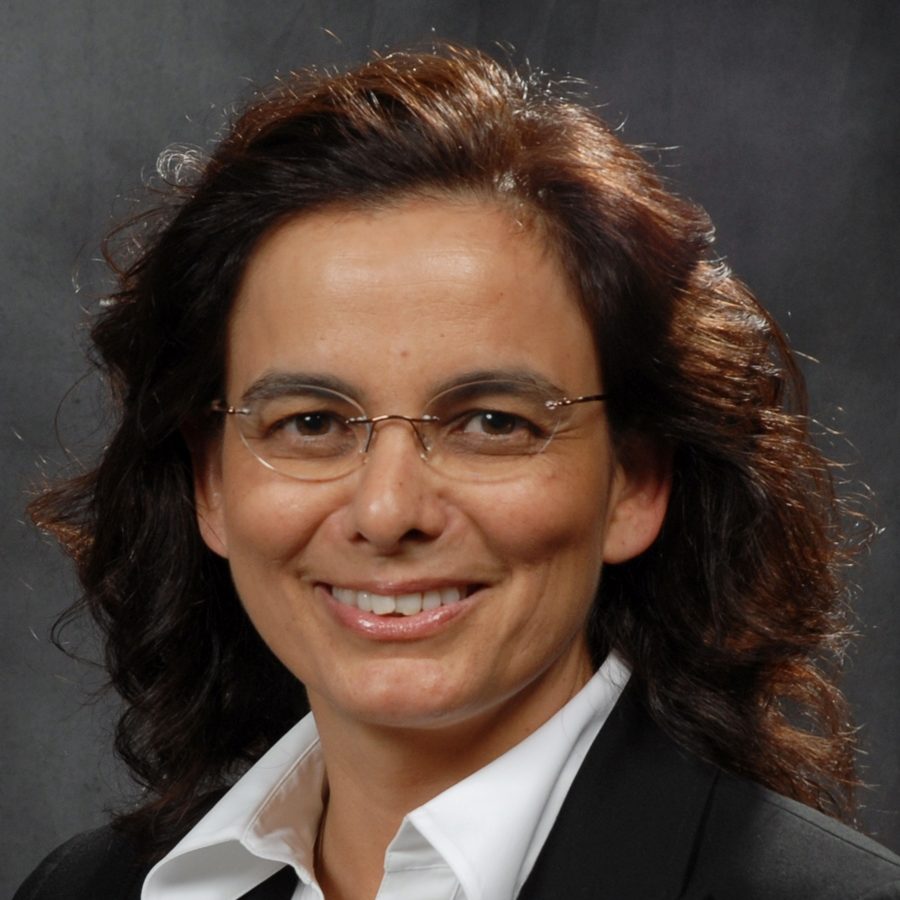As I meet with Dr. Moffitt, I see an office full of memories of classes past and books on the care of patients. Communication and openness are evident in the warmth of the setting. Dr. Moffitt, one of the original faculty for the University of Arizona College of Medicine – Phoenix, sits opposite me. In a very rare moment of calm, we have time to discuss her role in our medical education.
Mohammad Khan: “How have you seen students evolve from the first day of doctoring to some of the last?”
Dr. Maricela Moffit: As I walked into the classroom for our [the third year class’] Domestic Violence Simulation, you were all sitting in the back, and I saw the maturity on your faces. That is the gift of doctoring. For the most part, you know what to do, and you know how to communicate that information orally and with the written word. You can’t buy confidence. I want you to take it to the next level.
I wanted to thank your class for allowing yourself to be made vulnerable and allowed it to happen in doctoring and even in the domestic violence session. It is really kind of cool. I get to watch you stumble, and put your foot in your mouth, and most importantly do beautiful things in the room.
MK: What are some things you have tried to emphasize with the Doctoring Curriculum?
MM: That doctoring is formative, which allows the student to choose if I can live with a low score this week. This gives them the freedom to choose what to prioritize. I don’t want to put any more stress on you guys.
Doctoring is always baby steps, and I always raised the bar every time, even though you may have hated me, I know you can raise the bar in turn. I want you to honors all your rotations, I want you to have the option of getting into that competitive residency.
My heart warms when I see you guys in the VA putting those tools to use in that setting. In the beginning I forced you to create a structure, and I gave you rules to follow. But those rules will serve you until you no longer need them any more. If you apply the “Moffit rules” you will look good.
MK: How have things changed in the Doctoring curriculum over time?
MM: The course has certainly evolved over time. Some of my faculty were from our very first class! The course evolved as there are certain needs to be met. For example, every week there are three folders of information on the upcoming session. There are some people who need to know the why, why am I doing this? For these people, there is more information for them to peruse. Some people just need the recommended info to get started. It is always fun to see what the different students use to maximize their success.
Something I realized in those very first years it became clear to me I needed to do vocabulary, I realized in the second year that people are not using the language correctly. I started using the USMLE questions to fit that style of learning in and help your class.
MK: What is one of your favorite memories from running Doctoring all these years?
MM: I love opportunities to touch base with your class. All these things that students brought up to us, like the disabilities lecture, which was made by two students as a scholarly project. We made it in the evening, and it morphed into a potluck. I remember, it was in a tiny clinic on the first floor of building 1, we had people struggling in their wheelchairs to make it into the building. Back in the day, that was the last time the second class was ever fully together. We realized that this was the last time we are all together and we wanted to make those memories.
As a founding faculty member, the fun is to have these memories. One of my first memories was Clerkship Director for Maricopa County Hospital. It was a long road and a lot of effort to bring together the school. In fact, I remember a young Dr. Khan in Anesthesia now that you mention it.
MK: You knew my father?!
Mohammad Khan is a fourth-year medical student in The University of Arizona College of Medicine – Phoenix, Class of 2021. He graduated from Arizona State University in 2014 with two bachelor's degrees in biochemistry and biology. He then worked as a teacher and completed a Master's in biomedical diagnostics in 2017. For fun, Mohammad (who also goes by Mokha) likes to practice at the archery range, work on calligraphy, game, and fountain pen writing, and read science fiction novels. He is interested in medicine with a focus on educating patients.

